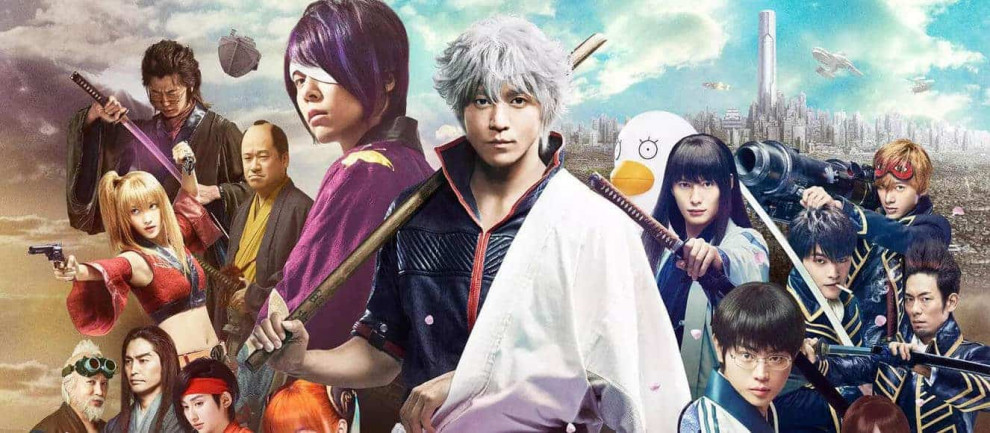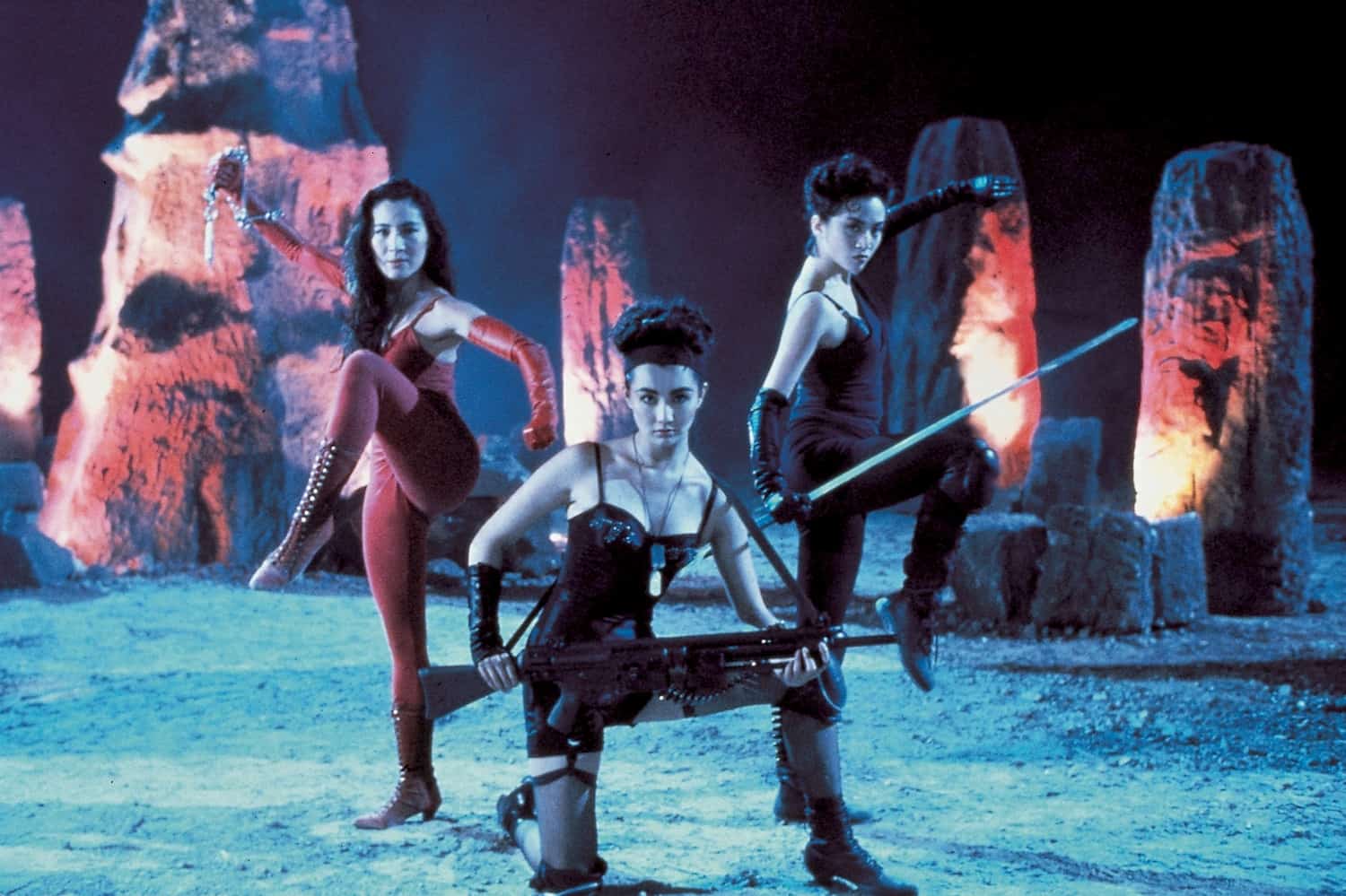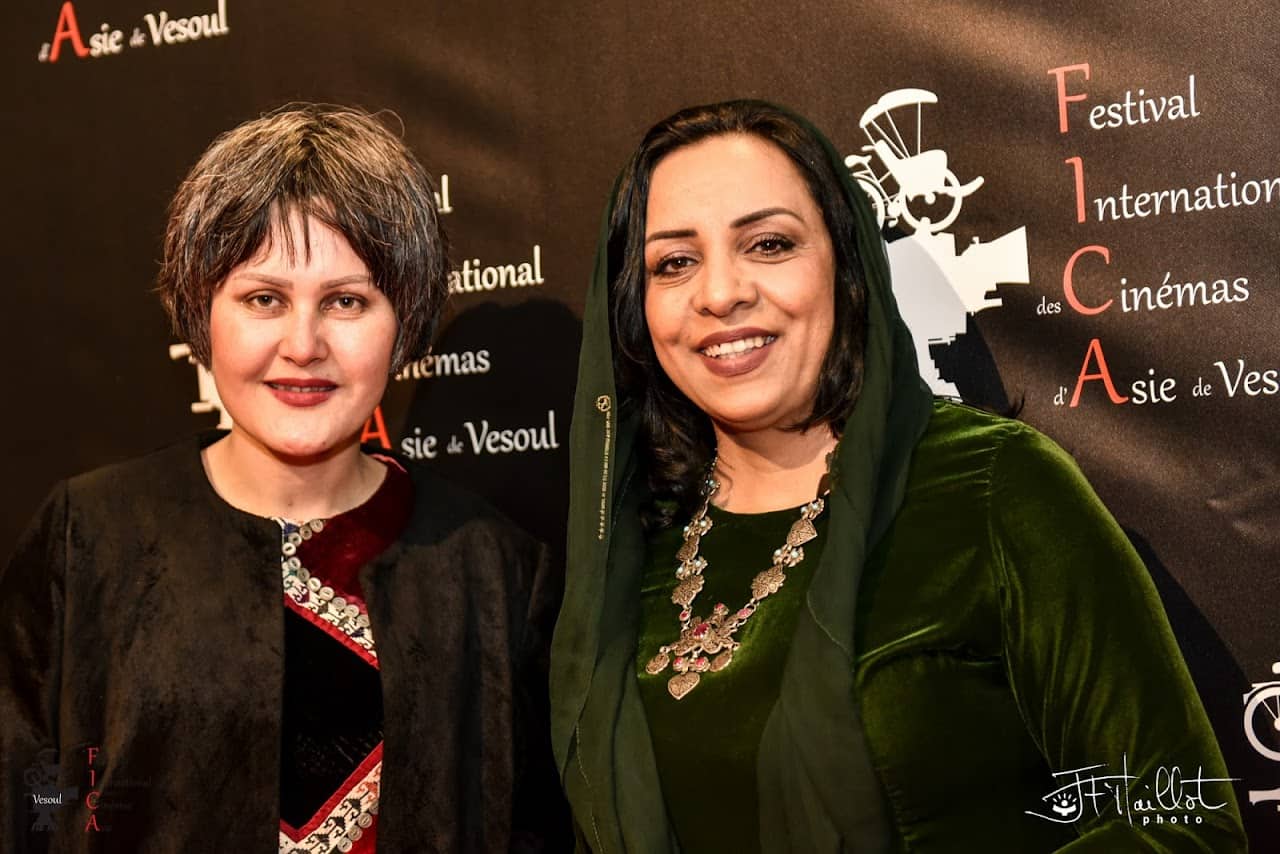With a manga that has sold over 50 million copies and an anime series that has been equally successful both in Japan and overseas, a live-action adaptation of “Gintama” was bound to happen. Yuichi Fukuda was tasked with the job and did a fine job on quite a difficult adaptation. Let us take things from the beginning, though.
Gintama is screening at the 19th Japan Film Fest Hamburg
The story takes place in an alternate late-Edo period, where humanity is attacked by aliens called “Amanto” but when the shogun realizes the power of aliens, he betrays the samurai and surrenders to the aliens. The shogun writes an unequal contract with aliens which allows the aliens to enter the country and places a ban on carrying swords in public. The swords of samurai are taken away so they can no longer resist the aliens. After that, the shogunate becomes a puppet government and samurai lose any kind of power or respect they used to command (the connection with the Meiji Restoration events is more than evident).
In this setting lies the protagonist of the story, Gintoki who runs a freelance odd-jobs agency, along with Shinpachi, the son of a former owner of a martial arts school, which was closed due to the new law, and Kagura, a girl with supernatural strength. When Katsura, a former comrade of Gintoki during the samurai days, disappears, his pet-alien Elizabeth, asks Gintoki to find him, while a renowned blacksmith, Tetsuya Murata tasks him with finding a legendary sword his father has forged, named Benizakura. As a serial killer, another former comrade, and the Shinsengumi get involved in the cases, which are proven much more complicated than Gintoki thought in the beginning, all hell breaks loose.
Probably the main reason the franchise is so popular is its extreme combination of absurdness (as a story), epicness (in the various battles) and mocking of history, anime and manga, movies, and almost any other thing that can come to mind, which has satisfied both comedy and action fans. Yuichi Fukuda directs a film that manages to include all these elements and to depict them in a fashion as absurd as the anime does. These elements include the preposterous characters and episodes that take place, which include golden beetles, aliens in the forms of cats and tigers, flying ships, laser swords, girls with guns, a number of perverts, and an extreme parody of the Meiji Restoration setting, and a number of anime and movies. Furthermore, the “breaking of the fourth wall”, which involves the characters mocking the actual movie they appear in, and even the concept of benshi are also here, again presented in ridiculous fashion.
In this setting, the acting could not but follow the same lines, with the characters switching between (brief) seriousness and (lengthy) absurdness almost constantly, as they act like caricatures most of the time. The cast, though, is quite impressive, with Shun Oguri (Gintoki), Yuya Yagira (Toshiro Hijikata) Ken Yasuda (Tetsuya Murata, the benshi-role we talked about) and Hirofumi Arai as the serial killer, all of which, along with the rest of the cast, play their parts with gusto and in complete resonance with the film's aesthetics, which include almost constant yelling on their part.
The production values of the movie are on a very high level, highlighting the budget the movie had, with Shingo Kobayashi's visual effects highlight the battles in the most impressive way (although some glitches here and there do exist) with the same applying to the action choreography, which manages to portray them quite closely to the ones in the anime. Furthermore, the work done in the costumes, the production design and in general, every technical aspect of the film, is impressive, and result in one of the best anime/manga adaptations we have seen the latest years.
If you enjoy comedy, action, parody, anime and their live-action adaptation, and most of all, absurdness, look no further, “Gintama” was made for you.















